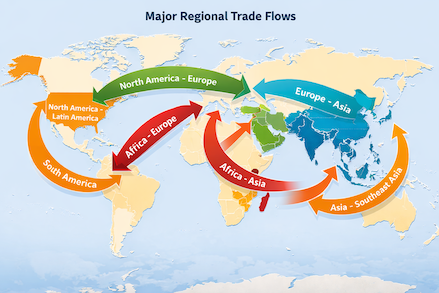Interview of Valérie Neim: « People traditionally trust only their family members or those from the same tribe as theirs »

Photo © Valérie Neim
Monde Économique: According to a study by the Boston Consulting Group, since 1998, the revenues of the 500 largest African companies (excluding banks) have increased by 8.3% per year and a new class of wealthy Africans is emerging. Yet, talking about wealth management is still taboo in Africa. Why is this?
Valérie Neim: I see two reasons:
1) Absence of education and exposure. Many Africans simply don’t know. The Bible teaches that my people perish for the absence of knowledge. That’s exactly what’s happening here. People simply don’t know how the world functions and that these sorts of services exist.
2) Africans have a culture of secrecy. People are very skeptical and don’t want others to know what they have or their plans. Africans in General find it hard to trust. People traditionally trust only their family members or those from the same tribe as theirs. We somehow still have a culture of feudal and tribalism. These affiliations are very strong and it takes time to erode them, even for those who confess to be educated.
However, on a more positive note, we have noted that in and as much as wealth and prosperity have increased, we have also seen a lot of evolution in mentality, brought about by an inevitable generational change. The youth have better education and exposure thanks partly to the Internet, which means that this situation continues to evolve in a positive sense. This is why our Service Citizenship by Investment was introduced to assist high net individuals on how to diversify their portfolio.
Monde Économique: Traditionally, project financing and business development have been the domain of investment banks, which are already jostling for position in the African market. Rather than a bank, why use Brazza Transactions
Valérie Neim: The reasoning is very simple. The size of our economy and the market in General. Many of the mainstream banks today spend most of their money financing Government and infrastructural development. But our experience shows that SMEs and very small SMEs are left behind, what we call Meso Finance. Yet as we all know, these companies make up the backbone of most economies in Africa.
At BT, we see this gap to fill as a major opportunity, and we are happy to advise and support with the help of our international partners.
Monde Économique: Despite the global slowdown in growth, the African continent seems to be more and more attractive for its diaspora. However, the African diaspora in France often lacks investment options or relays to better accompany them. How can Brazza Transactions meet their expectations ?
Valérie Neim: By definition diaspora means living and working outside your home country. This means that in a majority of cases, these people have lived too long in their host countries and have forgotten the realities of being at home.
At BT, it’s our role, ambition and objectives to ensure that we bridge this gap and support these people of the diaspora to reconnect with the realities of Africa in General and Cameroon in particular. In the hope to encourage them to join us in building Africa.
Let me give you some practical examples around Asset Management………..
Typically Africans repatriate about $300 billion in 2018
Part of that fund is to assist families in their physiological needs,
However most of that volume is to concretize their projects in their home country.
BT comes in to ensure that they can have a key in hand Project by using professionals ( lawyers, notaries, builders, quality controllers etc) and avoid any informal channel such as family and friends.
Monde Économique: Women’s entrepreneurship in Africa is mostly subsistence entrepreneurship: small businesses, with modest financing needs and a business model that does not provide investors with any guarantee of solidity. How to boost and support women entrepreneurship in Africa?
Valérie Neim: What you describe above is the old days. Things are now changing. Historically and culturally, women have focused on these small initiatives as you’ve described above. But with education and exposure, this is changing. I think we can change this narrative through:
1): Education – encouraging women via specifics courses on Access to Finances and pre-requisites
2): Special Programs- banks and other financial houses should have more bespoke products dedicated for women entrepreneurs
3): Role models and mentorship – there is a say that if you don’t tell your story, others will keep telling your stories in their own terms. Africa has gotten used to being painted in black by the west. This is why at BT via our Profiling Service we tell success stories to put successful Africans on the Map.
Monde Économique : You are part of this new generation of women leaders who are promoting the development and transformation of the African continent. What advice would you give to those young girls who would like to follow your example?
Valérie Neim: I take this remark as a compliment and I am humbled.
As Mandela would put it, « education is the one thing that could take a poor man to a rich man.
To the new generation I would say, read a lot, find role models, select your surroundings, have a vision, stay focused, believe in yourself, you can do it mentality BUT BUT BUT ABOVE ALL, NEVER NEVER NEVER GIVE UP. Perseverance Perseverance Perseverance.
Retrouvez l’ensemble de nos Interviews








